Changing Our World From 5 – 10 Days

Hotel
Meals
Transfer
Staff Guide
-
$950 ps
5 students Students 14-23 yrs -
$900 ps
10 students Students 14-23 yrs -
$850 ps
15 students Students 14-23 yrs -
$800 ps
20 students Students 14-23 yrs
Overview
Changing Our World - Youth Leadership Program (5 days)
This program is aimed at developing the leadership skills of our youth. Skills that will help our youth to develop solutions to the problems that need to be overcome for a fair and more just society and where everybody can realise their potential. And in doing so, helping communities address the challenges they face. The program is aimed at students who have an interest in third world countries and who want to make a contribution to improving the lives of people not only in these countries but in their own community.
The Changing Our World program is a 5-day, multi-faceted activity that combines One Horizon Africa's in-field experience in Africa and Kenya specifically. It emphases skills honed in collaboration with people from other cultures and the soft skills of negotiation, collaboration and leadership behaviours that are required for navigating successful outcomes. Underpinning the entire program are the team and communication skills which are integrated in all aspects of the activities conducted with students.
It's a fun, unique and exciting program that is inspirational and uplifting. It has been developed for school, college and university students. It also helps students identify their own personal life and vocational goals that they may pursue in the future.
What Student Groups Can Participate in the Program?
There are 2 specific groups of students that the program has been developed for. These are high school students aged from 14 to 17 years and college and university students (aged from 18 to 23 years). And the end of the program participants received a CERTIFICATE of ACHIEVEMENT from One Horizon Africa.
Book Now Enquire Now Download PDFGallery
View GalleryWhich brings together individuals and organisations committed to helping local communities and the environment.
itinerary
Session 1 - Introductions and Ice Breaker Fun
To be able to work together successfully the key learning activities start the very first morning with introductions and ice breakers. And the facilitators are One Horizon staff who are drawn from local Kenyan communities. The facilitators are with the students for their entire time.
Session 2 – Briefing – All About Kenya
The first morning of the program is spent giving participants an overview of Kenya. That is, an overview of the different age groups, employment levels, income, family structures and the social challenges within Kenya. This information is targeted and presented for the specific age of the students. It is prepared so that it enables students to gain a context for the days ahead.
Session 3 – The Communication Behaviours of Successful Leaders
The session focusses on the behaviours of successful leaders of change. And in this session, the students will be divided into smaller groups to work on developing solutions to current problems. And they will be observed, their behaviours recorded and feedback provided.
Before the session is ended the facilitators will predict the outcome of the students deliberations. And you will be amazed at how the facilitators are able to successfully determine the outcome of the group. Students will emerge from the session with a list of the most successful behaviours used by leaders of change which they can use forever after.
Session 4 - Values and Decision Making
This session involves an activities that involves students deciding how they would respond to a specific crisis. In the first part of this activity, the students undertake to develop a solution individually. And later, they must present their decisions and gain agreement to them from the whole group. The debate which ensues can heighten emotions and often compromise the student’s ability to reach a consensus decision. There is a specific time for the activity to be concluded and this only exacerbates the challenge of arriving at an agreed decision that all their group can live with. The facilitators are masters at providing the debrief and summarising the key learning lessons from this activity.
Session 5 - Debrief
At the end of the day a debrief summarises the key learnings from all the activities. And before that is finalised, each student will be asked to identify what they believe was the most important learnings that they will walk away with from the day.
Breakfast, lunch and dinner are provided as part of the day's activities
Session 1 – Goals and Measurable Outcomes
This session will focus on the specifics of the responsible and sustainable programs that are run by One Horizon. It focusses on what is a sustainable program in terms of its goals, how programs are implemented and the outcomes achieved. The session covers what it means to be successful and how the student can apply success factors to their own school and community. This session sets up an understanding of the in - field experiences that students will be part of over days 3 to 5.
Session 2 – What to Expect
A description will be given about each community that the students will interact with including:
- A traditional Maasai family group who live in a village
- Grandmas (not Maasai but Kikuyus) struggling to support their extended families and;
- Children (from 3 to 12 years) who attend One Horizon's nutrition and education center who come to receive food and an education.
Session 3 and 4 – Problem Solving
After the briefings provided in session 1 and 2, students will use a basic method provided by the facilitators to use when solve problem. This is an activity which enables students to be able to identify the parts of a problem and how to develop solutions. This is a group activity requiring the students to work successfully together.
Session 5 – Team Debrief
A debrief is provided at the end of day 2 which will summarise the key learnings from all the activities. And before this is finalised, each student will be asked to identify what they believe are the most important learnings that they will be able to use in the days and years ahead.
Breakfast, lunch and dinner are provided as part of the day's activities
A Maasai Community
The day is spent with a Maasai family in a village on the outskirts of Nairobi.
The students will have a total cultural and learning experience about life in the community from the perspective of a young Maasai women, a Maasai warrior and a village elder.
Part of the experience is conducted in a Maasai manyatta (traditional mud home) and there is a lot of singing and dancing. At the same time, students can ask questions that they believe would help them understand how the Maasai community operates.
It's a time to appreciate another culture and how the Maasai structure their lives and live each day. And it provides an insight into the challenges of the Maasai community.
At the end of the day, students are debriefed about what they would do to overcome some of the obstacles the community faces.
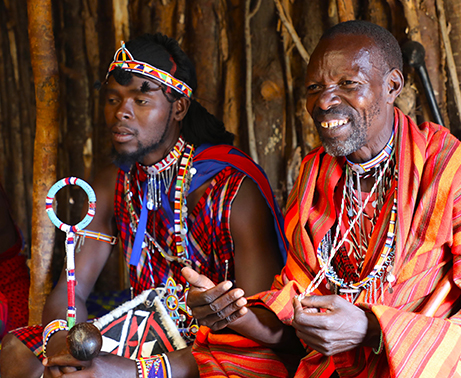
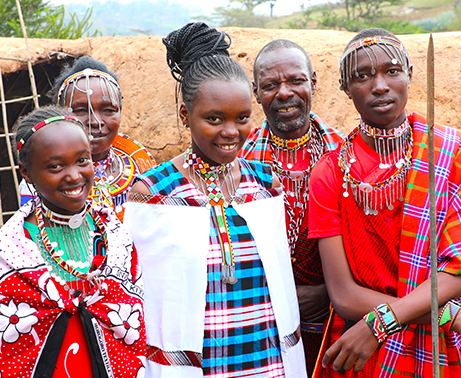
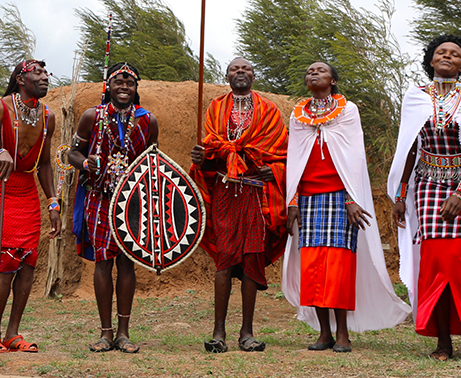
A Community of Grandmas forging New Futures
The day is spent in a family home and farm of Kikuyu grandmothers. The focus is to see how the grandmas are trying to secure a better future by raising pigs or chickens as a way of earning an income.
The students will meet the grandmas who will talk about their life and they can also undertake some of the chores associated with the farm. And in talking to the grandmas perhaps contrasts with student's own grandma will be made and similarities and differences in the life journey of these women.
Time is spent during the day thinking about the grandma's role in their own community and the solutions which students can come up to solve some of the challenges of being a grandma in their community.
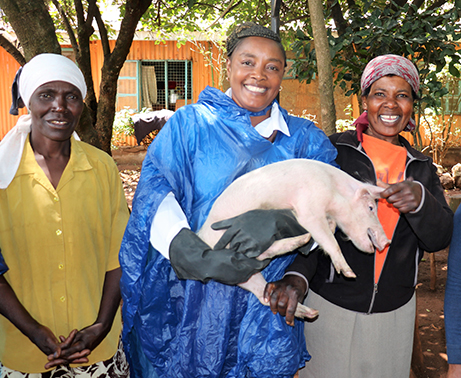
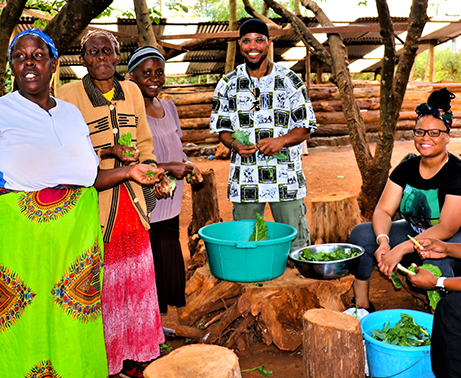
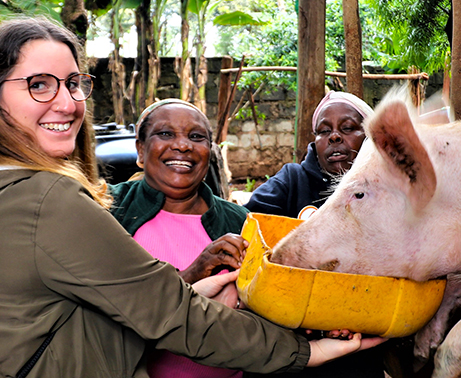
Nutrition and Education Center for Children
The day is spent at a nutrition and education center in a local community on the rural outskirts of Nairobi. It is a center which caters for the nutrition needs of not only vulnerable children aged from 3 to 12 years of age but also of their families.
Students will help prepare food for the children as well as feeding the youngest children who need to be assisted in this purpose. It's a day of involvement in helping the center feed more than 240 children.
The center is a micro community which is reflective of 50% of the Kenyan population. It's a moving and emotional day and caps off an extraordinary week for students.
Presentation of Certificates of Achievement
At the end of Day 5, students will be presented with the CERTIFICATE OF ACHIEVEMENT.
A video and image collection will be also sent to all students of the program which they can share with their school friends and family as a record of their experience and achievements.
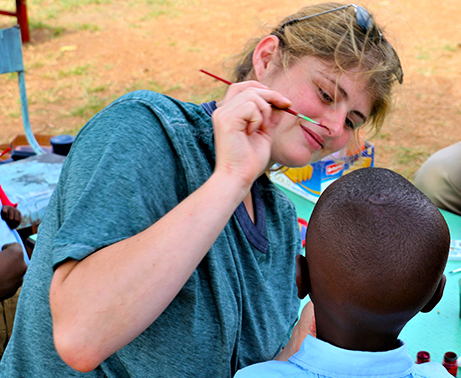
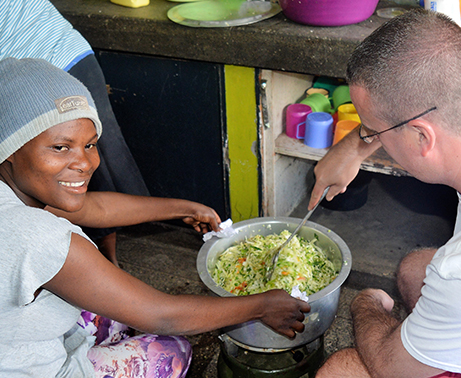
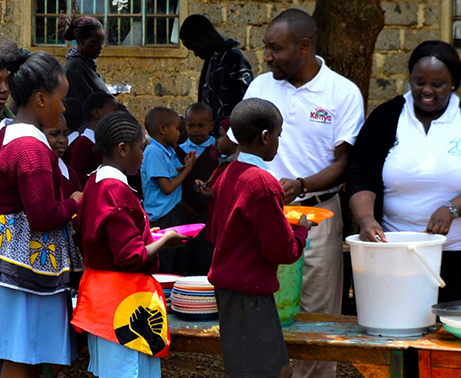
Inclusions
- 5 nights' accommodation
- 4 dinners with the One Horizon team at Nairobi restaurants on Days 1-4
- Lunch daily and unlimited fruit, tea, coffee and bottled water
- Air-conditioned car transfers
- One Horizon staff with you every step of the way
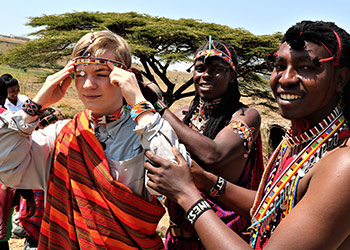
Your Stay In Nairobi
We are happy to recommend alternative accommodation options that meet your requirements during your time with us in Nairobi. Our preferred hotels are Palacina and Hemingways - If you would like us to explore other options please contact us.
FAQ
Q1. Are the students, irrespective of their age, in the same group each day?
Answer: We conduct two separate groups:
- 1. High school students aged from 14 to 17 years and;
- 2. College and university students (18 to 22 years)
Q2. Do students aged from 14 to 17 years need to be accompanied by a teacher/parent or guardian?
Answer: Our duty of care requires that a teacher/parent or guardian needs to be nominated by school administrators as the person(s) to accompany a group. Typically, it has been schoolteachers that are the lead person(s) in all aspects of the management of a high school or college/university group during the program's duration.
Q3. Do university students aged 18 to 22 years need to be accompanied by a teacher/parent or guardian?
Answer: No, college and university students do not need to be accompanied by a teacher, parent, or guardian. At the same time, One Horizon does require a single point of contact person for all liaisons.
Q4. Where do students reside for the duration of the Change the World program?
Answer: We provide a secure guest house for the duration of the program. It is at the guesthouse that the first 2 days of the program is conducted. The guest house accommodation is a twin share room arrangement It is a gated community with security guard. The guest house helps foster an environment of teamwork as the students will be involved in aspects of living and working as a cooperative team. This is fundamental to the experience.
Q5. Where do the teachers that are accompanying the high school and college/university students reside?
Answer: The teachers accompanying the students reside in the same guest house as the students. We aim to provide single room accommodation for teachers. Our request to participating schools is that they provide a 1 teacher to 10 student ratio. However, this aspect of the program will be discussed with the school as part of the travel discussions.
Q6. How will the students be transported to communities on days 3 to 5?
Answer: The students will be transported in air-conditioned private vehicles owned by One Horizon. The facilitators who are conducting the event are also the drivers/ guides who will be with students each day.
Q7. Will parents be able to contact their daughter/son when they need to?
Answer: All interactions between parents and their sons/daughters will need to be managed as per the policy of the school regarding such. At the same time, all our venues have internet connectivity including the vehicles used to transport students and staff. And One Horizon will provide 24-hour service in terms of providing its cell numbers and email addresses so that students can be contacted at any time.
Q8. What will students eat during the 5 days?
Answer: One Horizon caters for all food requirements including vegetarian, vegan and more traditional western meals. All ingredients are fresh and organic and provide healthy options for students. In the evening we embark on dinner at a selection of well-regarded restaurants as part of their Nairobi experience.
Q9. What about travel and health insurance?
Answer: Yes, taking out health insurance is a requirement for students' participation in the program. On One Horizon's website, World Nomads, is our preferred option. We do receive a commission for every insurance policy taken out on our website. And the funds go to support our sustainable programs. But the choice of students travel insurance provider is entirely at the discretion of their parents. There is no requirement to use World Nomads.
Q10. Does One Horizon have Public Liability and Professional Indemnity Insurance?
Answer: Yes, One Horizon has insurance cover which includes the above. A copy of that policy can be provided upon request.
Q11. What sets One Horizon and its experiences apart?
Answer: One Horizon is a not-for-profit organisation registered in Kenya. It is a non-denominational organisation and is accredited by the Kenyan Government to work within Kenyan communities. It does not receive any financial or other support from the Kenyan Government. It's overriding mission is to provide the steppingstones for people to life themselves out of poverty.
Its sustainable programs are funded by the tours it conducts and the donations it receives. Hence its focus is the disadvantaged and marginalised communities in Kenya ie women, the aged and youth. Its focus is on empowering communities to determine their own future and in doing so to be able to keep their families together. Its mission and work are captured in our video 'What We Do'
Video
One Horizon Africa was delighted to host the Ron Clark Academy from Atlanta Georgia (USA) recently at our own school centre in Nairobi and it was one of the most delightful and inspiring days for us all.

Unique Cultural
Holiday Experiences
Subscribe To
Our Newsletter
To receive latest news & offers
Share your email ID below
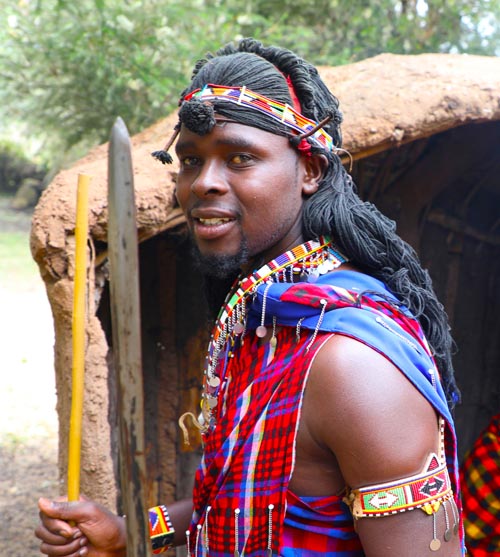

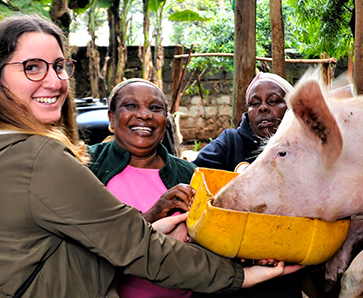
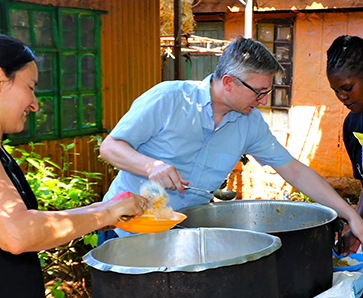
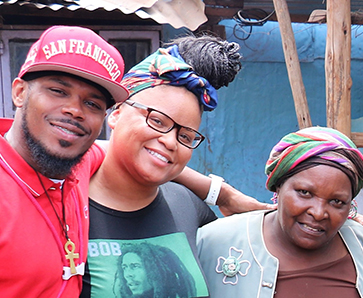
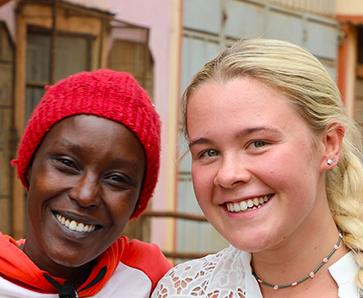
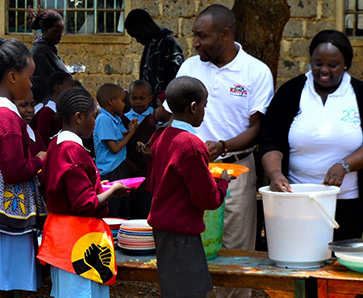
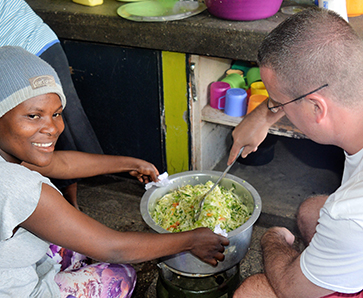
 One Horizon Africa
One Horizon Africa @onehorizonkenya
@onehorizonkenya onehorizonkenya
onehorizonkenya

